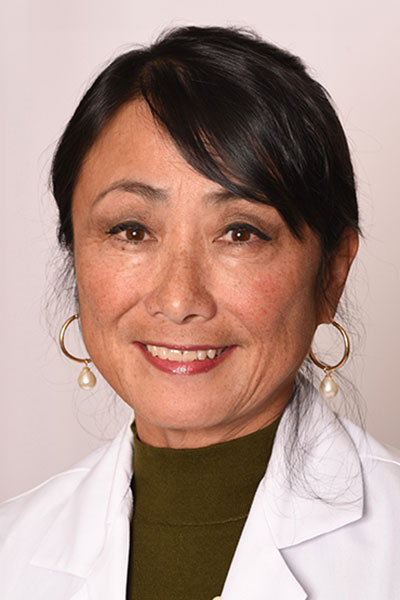There’s no argument here. The Great Debates are some of the most anticipated sessions of ACR Convergence. One presents a question related to treatment of adults living with rheumatologic disease, and one presents a question related to pediatric patients.
Both debates will take place Monday, Nov. 13. They will be livestreamed and available on demand within 24 hours for registered ACR Convergence 2023 participants.
Adult Great Debate

The Adult Great Debate asks whether polymyalgia rheumatica (PMR) and giant cell arteritis (GCA) should be treated with advanced therapies at disease onset. Philip Seo, MD, MHS, Associate Professor of Medicine at Johns Hopkins University and Director of The Johns Hopkins Vasculitis Center, will make the case for doing so. Robert Spiera, MD, Director of the Scleroderma, Vasculitis, and Myositis Center at the Hospital for Special Surgery, and Professor of Clinical Medicine at Weill Cornell Medical College, will present evidence for the opposing stance. The debate will begin at 9 a.m. PT in Exhibit Hall A–B.
“It’s nuanced on both sides, which is exactly why it’s a great debate,” Dr. Spiera said.
Many patients with GCA have PMR symptoms as well. Likewise, a substantial number of patients with PMR develop GCA.
“We know that steroids work to control disease activity in both of these disorders. We also know that treatment with steroids alone is often inadequate,” Dr. Spiera explained. “And it’s been demonstrated that long-term glucocorticoid therapy has been associated with substantial toxicities. So, for years, there’s been a search for effective, safe steroid-sparing modalities in these two disorders.”
Methotrexate has been used in the treatment of both PMR and GCA but without evidence of robust benefit. Increased understanding of the pathophysiology of the diseases enabled the development of targeted biologic drugs, and now interleukin 6 (IL-6) inhibitors have been granted regulatory approval by the U.S. Food and Drug Administration (FDA) approval for use in PMR (sarilumab) and GCA (tocilizumab).
“It’s not entirely clear whether it should be used upfront in all patients,” Dr. Spiera said. “It’s a complicated and individualized decision. Patients can have different susceptibilities to steroid-related side effects or underlying comorbidities that would suggest a more pressing need to minimize steroid exposure. Moreover, patients can have very different disease trajectories in terms of duration of steroid exposure. And for patients with large vessel vasculitis like GCA, it is not always clear what the risk will be for later vascular damage. Whether IL-6 inhibition or other strategies being assessed will afford a ‘disease-modifying’ benefit remains to be seen.”
Pediatric Great Debate

Presenters in the Pediatric Great Debate will weigh whether to initiate early combination therapy or step-up therapy for polyarticular juvenile idiopathic arthritis (JIA). The session will begin at 12 p.m. in Room 6A-B.
“As physicians treating children with juvenile arthritis, this reflects an issue we’re faced with on a daily basis,” said Petra Hissink Muller, MD, PhD. “If we have a new patient, we can really register disease activity in a concise manner and start treatment. But it’s not really clear yet what the best treatment option is to start with.”
Dr. Hissink Muller, a pediatrician specializing in rheumatology and immunology at Leiden University Medical Center, The Netherlands, will take the side of step-up therapy, while Yukiko Kimura, MD, Professor of Pediatrics at Hackensack Meridian School of Medicine, will take the side of early combination therapy.
“There’s increasing evidence that a window of opportunity exists and that most patients should be started on the most effective therapy, which is biologics in combination with methotrexate. In a recent study assessing these different treatment strategies, three-year outcomes were better if they got started on biologics earlier,” Dr. Kimura said.

Still, many clinicians prefer to wait and see what happens to a patient with traditional treatment with disease-modifying antirheumatic drugs (DMARDs) before starting a biologic.
“Treatment to target is a powerful tool to possibly defend a step-up strategy. In one study, results were in favor of early combination therapy three months after start of therapy. After two years, however, results were similar in all three arms as long as a treatment-to-target strategy was applied,” Dr. Hissink Muller said. “So, there is literature that can defend both viewpoints quite well. It’s not crystal clear yet whether to be an advocate of either one of them, therefore it’s valuable to dig into this topic.”
Any rheumatology provider who cares for JIA patients would benefit from attending the pediatric debate.
“Pediatric rheumatologists will certainly benefit, but a lot of adult rheumatologists also take care of children, and all need to have guidance as to how aggressive to be, and whether this window of opportunity exists,” Dr. Kimura said.
Register Today for ACR Convergence 2025

If you haven’t registered for ACR Convergence 2025, register today to participate in this year’s premier rheumatology experience, October 24–29 in Chicago. All registered participants receive on-demand access to scientific sessions after the meeting through October 31, 2026.
